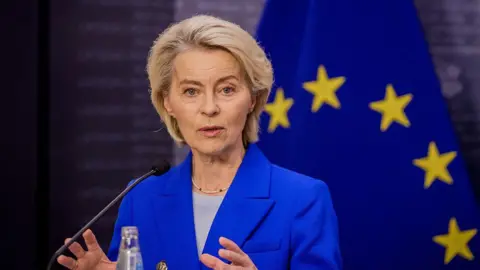As the U.S. government scales back research support and threatens prestigious institutions with funding freezes, European leaders, led by French President Emmanuel Macron, are positioning their countries as havens for scientific inquiry. At an event called "Choose Europe for Science" held at the Sorbonne University in Paris, Macron highlighted the pitfalls of the American government's recent initiatives, stating that it was “unthinkable” for a nation reliant on free science to remove research programs, especially over the term “diversity.” He went on to criticize the recent withdrawal of research visas for foreign scholars stating that this is an immense "error" and "gigantic miscalculation."
Ursula von der Leyen, President of the European Commission, echoed Macron's sentiments without explicitly naming the U.S. She unveiled a $566 million investment plan aimed at transforming Europe into a hub for researchers worldwide over the next two years. This funding aims to attract “the best and the brightest” thinkers, ensuring that fundamental and open research remains a priority in the continent's academic and scientific landscape.
As Europe positions itself as a refuge for researchers facing an uncertain future in the U.S., the shift underscores the growing concern regarding the global implications of nationalistic policies on science and innovation.
Ursula von der Leyen, President of the European Commission, echoed Macron's sentiments without explicitly naming the U.S. She unveiled a $566 million investment plan aimed at transforming Europe into a hub for researchers worldwide over the next two years. This funding aims to attract “the best and the brightest” thinkers, ensuring that fundamental and open research remains a priority in the continent's academic and scientific landscape.
As Europe positions itself as a refuge for researchers facing an uncertain future in the U.S., the shift underscores the growing concern regarding the global implications of nationalistic policies on science and innovation.





















